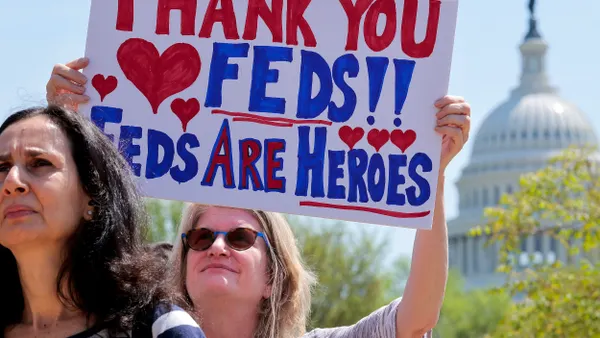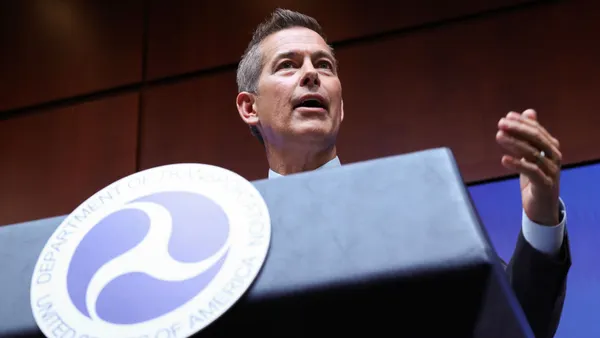Dive Brief:
- New York City Council passed a ban Thursday on cashless food and retail establishments, according to the council's website. It will go into effect 270 days after it becomes law following the mayor's signature.
- The bill penalizes operators of up to $1,000 for the first violation and up to $1,500 for each following violation.
- These establishments don’t have to accept denominations of over $20, and transactions made online, by phone or mail are excluded.
Dive Insight:
New York City is now the largest city to have approved a ban on cashless stores and could have dramatic impacts on restaurants that are moving toward a more tech-centric future. Similar bans passed in Philadelphia, New Jersey and San Francisco in 2019. Chicago and Washington, D.C. are mulling similar policies as well. These bans are costly too, with fines up to $2,000 for each violation in Philadelphia. New Jersey's ban could cost $2,500 for the first offense and $5,000 afterwards.
Restaurants that have chosen to go cashless have said that it reduces problems with theft and takes pressure off employees. Following the passage of San Francisco's ban, the local restaurant chain Freshroll was broken into twice, and the company had to add cameras and an alarm system, according to the San Francisco Chronicle.
Going cashless can also help improve employee relations. Dos Toros Taqueria founder Leo Kremer testified against the New York City's ban last year, arguing that the store's cashless policy has reduced the need to punish employees or fire them if management noticed a discrepancy with cash.
Much of the argument against cashless stores has been that it excludes those that are unbanked or underbanked, which is when someone has a bank account but uses other services to cash checks. About 12% of New York City’s population didn't have a bank account in 2013, which was higher than the national average of 7.7%, and 25% were underbanked at that time, according to a committee report.
The growing trend among local governments to ban cashless operations could slow the trajectory of the global movement toward digital payments. Within the next decade, one in 10 transactions are expected to be made with cash, and many establishments have already been adding self-order kiosks and other technology in preparation. But these bans have led to restaurants needing to buy new registers that hold cash even after some have installed self-order kiosks. Sweetgreen, which was a cashless establishment before multiple bans were put in place, reversed course and began accepting cash payments in Philadelphia in July 2019 and rolled out cash payments across its system by the end of last year.
New York City's ban could also impact a number of restaurant concepts that have recently debuted pickup-only formats in the market. Chopt, for example, opened a pickup- and delivery-only store in New York City last year, and Starbucks also opened its first pickup-only store in the city last fall. It will be interesting to see how this law approaches these concepts, since orders can only be placed online — a channel the law excludes.
Correction: In a previous version of this article, the description of New York City's ban was incorrect. The law bans cashless concepts, not cashless payments.











